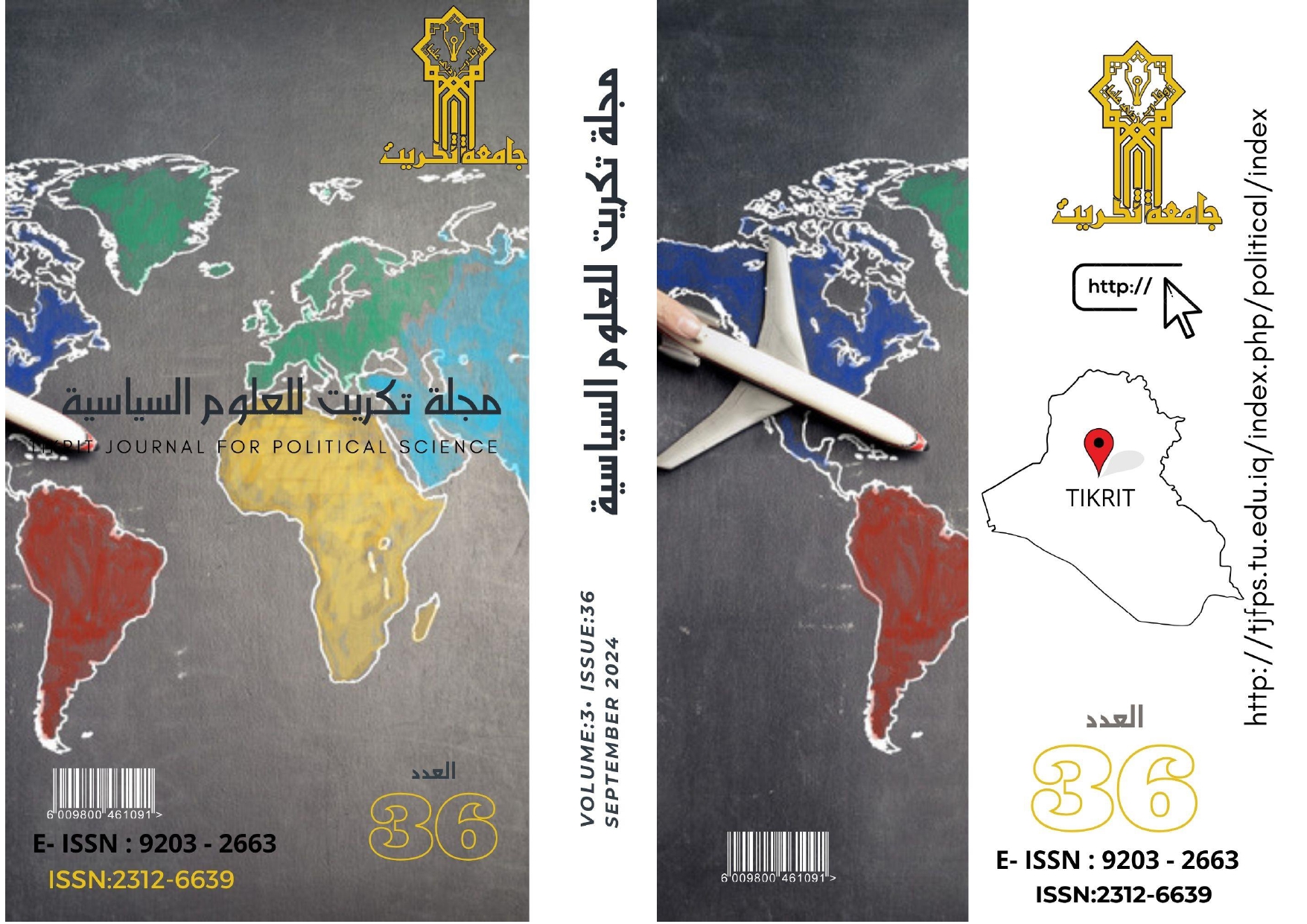Abstract
The expansion of borders in the Kurdistan Region has been a contentious issue, with significant implications at both the local and regional levels. The Kurdish Regional Government's attempt to incorporate additional territories, particularly those previously liberated from ISIS, has sparked debates and garnered diverse perspectives.
At the local level, proponents of expanding borders argue that these territories are of historical and cultural significance to the Kurdish people. They view the boundaries as a non-negotiable part of their identity and emphasize the sacrifices made to reclaim them from ISIS. This perspective asserts that incorporating these areas into the Kurdistan Region is crucial for safeguarding Kurdish interests and ensuring their political and economic autonomy.
However, there are also voices of dissent within the local population. Critics express concerns about the potential consequences of expanding borders, including demographic shifts, strained resources, and political instability. Some fear that such a move could exacerbate ethnic tensions and lead to conflicts with non-Kurdish communities residing in these areas.
Regionally, the perspectives on the expansion of Kurdistan's borders vary. Neighboring countries, such as Turkey, Iran, and Syria, have expressed strong opposition to the idea. They fear that it could embolden Kurdish separatist movements within their own territories and destabilize the region. These countries have also raised concerns about potential implications for their own national security and territorial integrity.
On the other hand, there are regional actors who are more supportive or adopt a more nuanced stance. Some argue for diplomatic engagement and negotiation to address the Kurdish aspirations within the framework of existing borders. They emphasize the need for peaceful dialogue and respect for international law to prevent further escalations and find mutually agreeable solutions.
At the local level, proponents of expanding borders argue that these territories are of historical and cultural significance to the Kurdish people. They view the boundaries as a non-negotiable part of their identity and emphasize the sacrifices made to reclaim them from ISIS. This perspective asserts that incorporating these areas into the Kurdistan Region is crucial for safeguarding Kurdish interests and ensuring their political and economic autonomy.
However, there are also voices of dissent within the local population. Critics express concerns about the potential consequences of expanding borders, including demographic shifts, strained resources, and political instability. Some fear that such a move could exacerbate ethnic tensions and lead to conflicts with non-Kurdish communities residing in these areas.
Regionally, the perspectives on the expansion of Kurdistan's borders vary. Neighboring countries, such as Turkey, Iran, and Syria, have expressed strong opposition to the idea. They fear that it could embolden Kurdish separatist movements within their own territories and destabilize the region. These countries have also raised concerns about potential implications for their own national security and territorial integrity.
On the other hand, there are regional actors who are more supportive or adopt a more nuanced stance. Some argue for diplomatic engagement and negotiation to address the Kurdish aspirations within the framework of existing borders. They emphasize the need for peaceful dialogue and respect for international law to prevent further escalations and find mutually agreeable solutions.
Keywords
Expanding borders • Kurdistan Region • local
Abstract
تمتد مشكلة توسيع الحدود في إقليم كردستان إلى مستويات محلية وإقليمية، وتثير جدلاً واسعًا. محاولة حكومة الإقليم لضم مناطق إضافية، خاصة تلك التي تم تحريرها من تنظيم داعش، أثارت ردود أفعال وآراء متنوعة.
على المستوى المحلي، يؤيد أنصار توسيع الحدود فكرة ضم هذه المناطق، لانها ذات أهمية تاريخية وثقافية للشعب الكردي. يرون هذه الحدود غير قابلة للتفاوض وجزءًا لا يتجزأ من هويتهم، مؤكدين التضحيات التي تمت لاستعادتها من تنظيم داعش. يعتبر هؤلاء أن ضم هذه المناطق إلى إقليم كردستان أمر حاسم لحماية مصالح الكرد وضمان استقلالهم السياسي والاقتصادي.
ومع ذلك، هناك أيضًا أصوات معارضة داخل السكان المحليين. يعبر المنتقدون عن مخاوفهم بشأن العواقب المحتملة لتوسيع الحدود، بما في ذلك التغييرات الديموغرافية والتوترات المتزايدة في الموارد وعدم الاستقرار السياسي. يخشى البعض أن مثل هذه الخطوة قد تزيد من التوترات العرقية وتؤدي إلى نزاعات مع المجتمعات غير الكردية المقيمة في تلك المناطق.
على المستوى الإقليمي، تتفاوت وجهات النظر بشأن توسيع حدود كردستان. أعربت الدول المجاورة مثل تركيا وإيران وسوريا عن رفضها الشديد لهذه الفكرة. يخشون أنها قد تشجع حركات الانفصال الكردية داخل أراضيهم الخاصة وتزعزع استقرار المنطقة. كما أعربت هذه الدول عن مخاوفها من التأثيرات المحتملة على أمنها القومي وسلامة حدودها الوطنية.
من ناحية أخرى، هناك أطراف إقليمية تؤيد أو تتبنى موقفًا أكثر توازنًا وتعقيدًا. يرون ضرورة التواصل الدبلوماسي والمفاوضات لمعالجة تطلعات الأكراد ضمن إطار الحدود الحالية. يشددون على الحاجة إلى الحوار السلمي واحترام القانون الدولي لمنع المزيد من التصعيد وإيجاد حلول متفق عليها.
على المستوى المحلي، يؤيد أنصار توسيع الحدود فكرة ضم هذه المناطق، لانها ذات أهمية تاريخية وثقافية للشعب الكردي. يرون هذه الحدود غير قابلة للتفاوض وجزءًا لا يتجزأ من هويتهم، مؤكدين التضحيات التي تمت لاستعادتها من تنظيم داعش. يعتبر هؤلاء أن ضم هذه المناطق إلى إقليم كردستان أمر حاسم لحماية مصالح الكرد وضمان استقلالهم السياسي والاقتصادي.
ومع ذلك، هناك أيضًا أصوات معارضة داخل السكان المحليين. يعبر المنتقدون عن مخاوفهم بشأن العواقب المحتملة لتوسيع الحدود، بما في ذلك التغييرات الديموغرافية والتوترات المتزايدة في الموارد وعدم الاستقرار السياسي. يخشى البعض أن مثل هذه الخطوة قد تزيد من التوترات العرقية وتؤدي إلى نزاعات مع المجتمعات غير الكردية المقيمة في تلك المناطق.
على المستوى الإقليمي، تتفاوت وجهات النظر بشأن توسيع حدود كردستان. أعربت الدول المجاورة مثل تركيا وإيران وسوريا عن رفضها الشديد لهذه الفكرة. يخشون أنها قد تشجع حركات الانفصال الكردية داخل أراضيهم الخاصة وتزعزع استقرار المنطقة. كما أعربت هذه الدول عن مخاوفها من التأثيرات المحتملة على أمنها القومي وسلامة حدودها الوطنية.
من ناحية أخرى، هناك أطراف إقليمية تؤيد أو تتبنى موقفًا أكثر توازنًا وتعقيدًا. يرون ضرورة التواصل الدبلوماسي والمفاوضات لمعالجة تطلعات الأكراد ضمن إطار الحدود الحالية. يشددون على الحاجة إلى الحوار السلمي واحترام القانون الدولي لمنع المزيد من التصعيد وإيجاد حلول متفق عليها.
Keywords
توسيع الحدود • إقليم كوردستان • وجهات النظر ا
